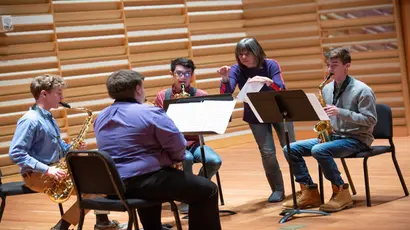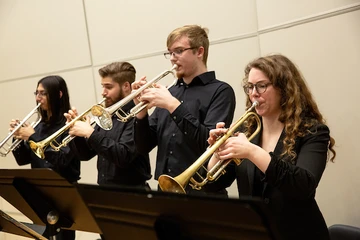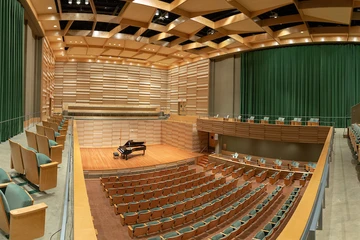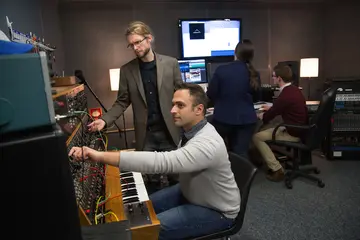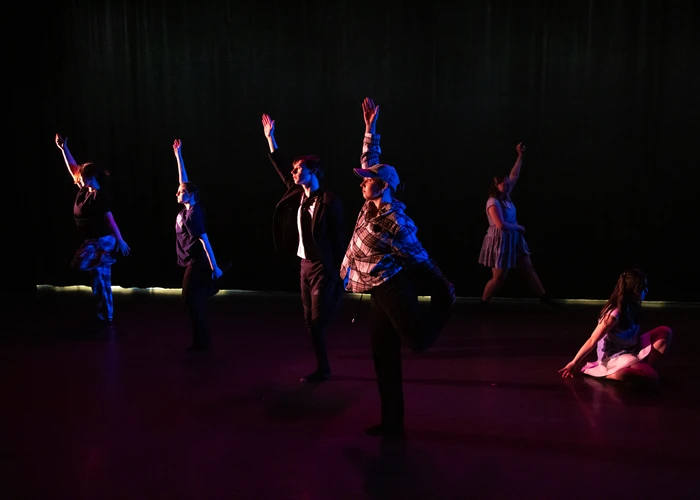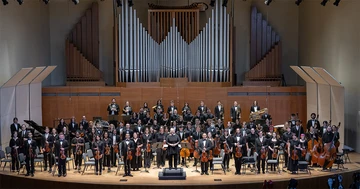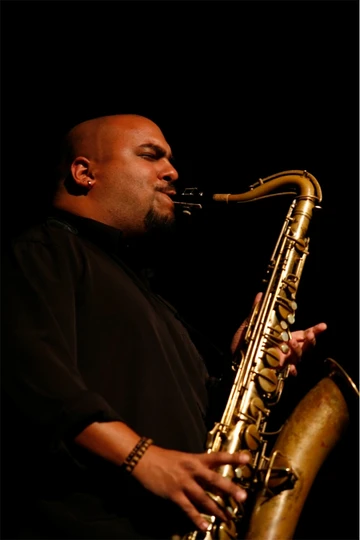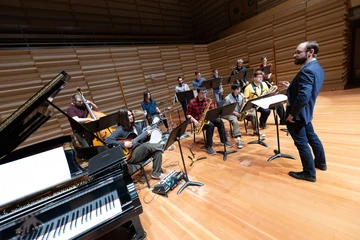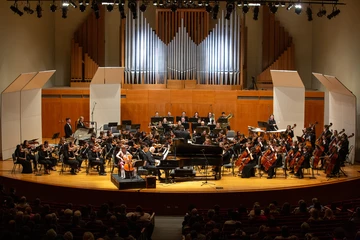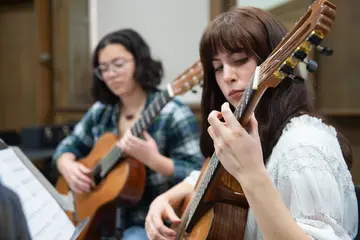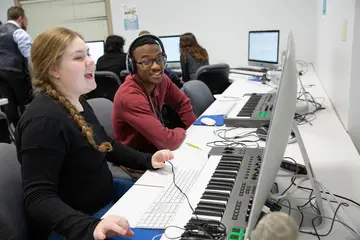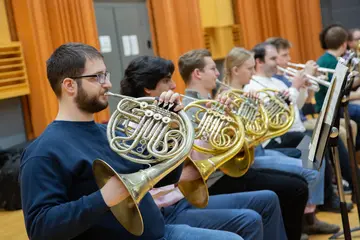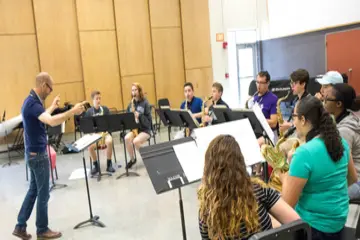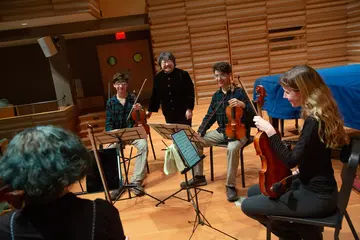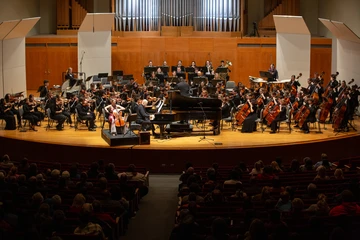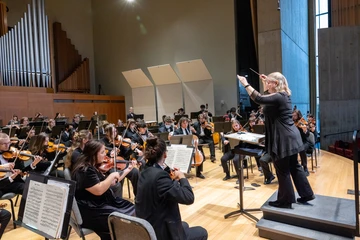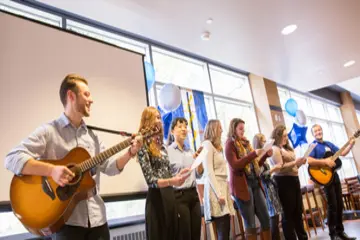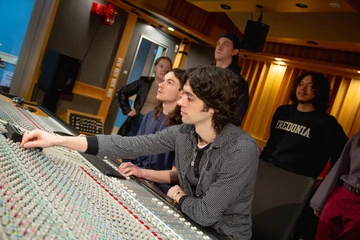A Master’s in Composition, Designed for Impact
Fredonia’s Master of Music in Composition is for those ready to create boldly and shape the future of music. Here, you’ll grow as a composer, scholar, and collaborator in a program that champions both artistic vision and professional versatility. You’ll work closely with world-class faculty, compose for live ensembles and media, and be immersed in a vibrant community of creators and performers. Our graduates leave prepared for top-tier doctoral programs and careers in music performance, education, technology, and more. If you’re ready to turn your passion for composition into a meaningful career, Fredonia is your launchpad.
What You’ll Gain
- Artistic Mastery – Private composition lessons and frequent performances help refine your personal voice and technical skill.
- Scholarly Depth – Coursework in theory, history, and research prepares you for advanced study and academic leadership.
- Collaborative Experience – Work with dancers, filmmakers, poets, and visual artists in a community where creative disciplines intersect.
- Professional Portfolio – Present your original works through frequent concerts and your graduate recital, showcasing your range and talent.
- Advanced Technology Skills – Access cutting-edge music technology labs and industry-standard software for notation, recording, and production.
- Performance Opportunities – Get your work performed regularly in one of the many recitals, concerts, or interdisciplinary showcases hosted throughout the year.
- Career Readiness – Be prepared for doctoral programs, composition residencies, or immediate careers in education, media, and performance.
- Mentorship and Networking – Connect with nationally recognized composers and Fredonia alumni who are reshaping the musical landscape.
- Accredited Excellence – Study in a program accredited by the National Association of Schools of Music and rooted in over 100 years of musical excellence.

